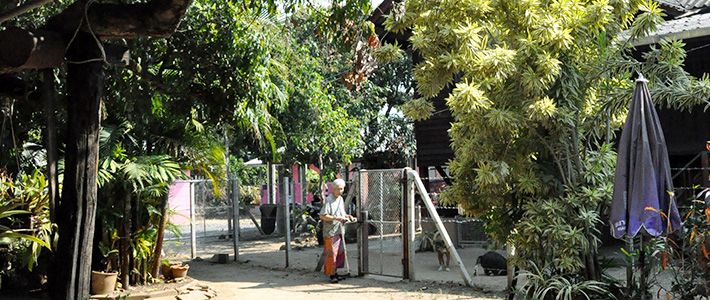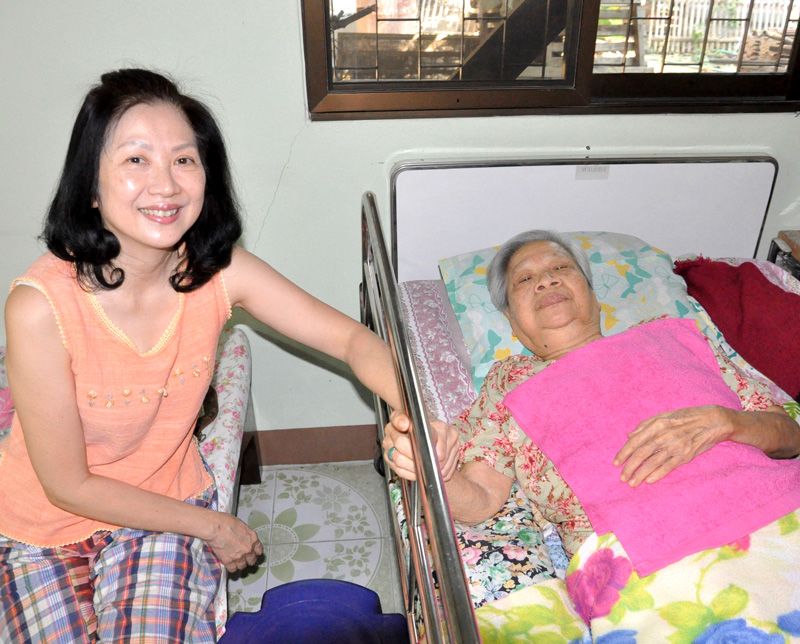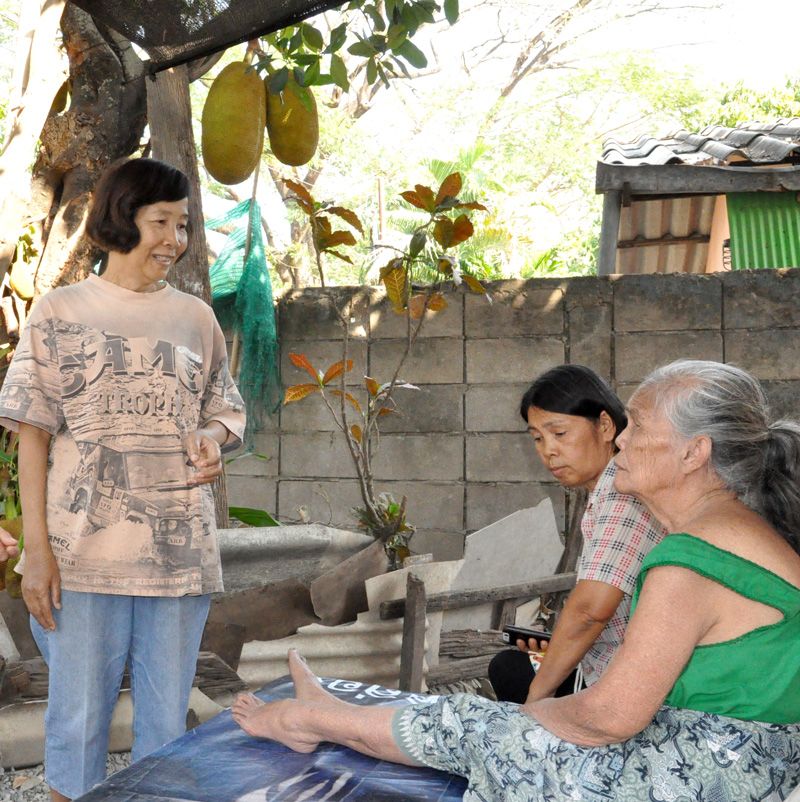
Aging in Japan and Across Asia
The Volunteer Care Network Supporting Rural Thai Areas
Society- English
- 日本語
- 简体字
- 繁體字
- Français
- Español
- العربية
- Русский
The Cost of Home Care in Rural Thailand
The trees standing here and there in the farmhouse gardens are heavy with great bunches of ripe bananas and hefty jackfruits. Located in northern Thailand’s Chiang Mai Province, the village of Baan Mai is home to roughly 240 people in 54 households. Fifty-eight of the residents are older people, four of whom live alone.
My visit is being coordinated by Sawang Kaewkantha, executive director of the Foundation for Older Persons’ Development (FOPDEV), a Chiang Mai–based NGO that supports health promotion and other efforts among older people in northern Thailand. As we walk through the village that day, the only residents we meet older people and children: Most of the villagers of prime working age are in the cities, working as company employees or day laborers.
We visit the home of Prakai, an 85-year-old woman who has lived alone since her husband passed away ten years ago. Prakai has been bedridden for two years now, and employs a carer.
Nevertheless, she smiles cheerfully at us from her bed. Her only daughter, Prathana, although married, lives nearby and visits frequently. Prathana is a nurse at a Chiang Mai hospital and also teaches at a nursing school. She paid 12,000 baht for her mother’s nursing-care bed and 5,000 baht for her wheelchair.
The woman who visits each day to care for Prakai, meanwhile, is paid a monthly salary of 8,000 baht. In Japan, such costs are largely covered by nursing-care insurance, but Thailand has no such insurance system, making care a significant household expense. Prakai receives 600 baht per month from the government as her old-age pension, but this is not enough to pay for the care she needs. She supplements her old-age pension with a survivor’s monthly pension of 10,000 baht per month thanks to her late husband’s employment at a government bank. Once a month she also travels in her wheelchair to the public hospital for a physical examination, but under the Thai government’s universal healthcare scheme, basic medical services are provided free of charge.
 Prakai and her daughter Prathana.
Prakai and her daughter Prathana.
A Volunteer Care Network with Buddhist Roots
Prakai’s access to home care and support makes her one of the luckier older people in Thailand. According to FOPDEV, daughters have traditionally shouldered most of the burden of care in Thailand; by custom, the youngest daughter in particular is expected to care for her parents. In recent years, however, single-child and childless families have become more prevalent, with a corresponding decrease in the number of potential carers.
Instead, people in rural areas rely on volunteers organized on the tambon, or subdistrict, level. Thailand has more than 1 million volunteers involved in regional health and hygiene projects in total. In Baan Mai, there are 18 such volunteers. They pay frequent visits to Prakai and others like her, with each volunteer taking on responsibility for three or four older people. They receive only 600 baht per month from the government for this work, but their desire to volunteer is strong—a unique consequence of the emphasis on virtuous acts in this Buddhist nation.
Japan’s public nursing care insurance scheme means that care is provided by family and professionals, leaving little room for volunteer organizations to play a leading role. In Thailand’s urban areas, too, it is becoming more difficult for volunteer networks to function. In my next article, I will focus on Japanese companies’ participation in efforts to address the aging society of urban Thailand.
(Originally written in Japanese. Banner photo: A farming village in northern Thailand. All photos © Takeuchi Yukifumi.)